MercoPress. South Atlantic News Agency
Tag: Antarctic krill
-
Wednesday, August 3rd 2022 - 08:32 UTC
Argentina and Chile lobby for a Marine Protected Area west of Antarctica Peninsula
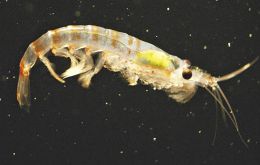
Argentine and Chilean relations have not been traditionally smooth given the several borderline disputes both in land and in the sea, but there is a chance that this rivalry turns into a biodiversity milestone, with the joint proposal to create a Marine Protected Area in waters next to west Antarctica Peninsula and south of the Scotia arc, a project in which the Chilean Antarctic Institute and Argentina's Antarctic Institute have been working on since 2012.
-
Wednesday, August 18th 2021 - 09:12 UTC
Plastic pollution and ocean acidification reduce Antarctic krill development, BAS research
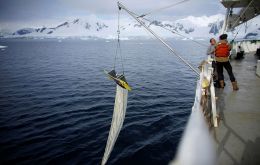
Plastic pollution combined with ocean acidification hinders the development of Antarctic krill in the Southern Ocean, research published in Marine Frontiers reveals.
-
Sunday, April 25th 2021 - 23:21 UTC
World Penguin Day once again celebrated in times of Covid-19
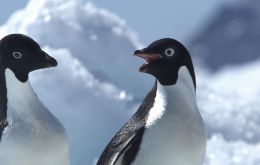
This Sunday, April 25, is World Penguin Day's celebration, a creation by researchers at the McMurdo Station, an American scientific center on Antarctica's Ross Island to mark every year's migration of Adeline penguins to the north.
-
Monday, October 17th 2016 - 09:34 UTC
Global momentum to protect the Antarctic Ocean builds as international talks begin in Hobart

The Antarctic Ocean Alliance is calling on nations to secure the future of the Antarctic and Southern Ocean, at the Conservation of Antarctic Marine Living Resources (CCAMLR) currently meeting in Hobart, Australia. This week, representatives from 25 governments are gathering in Hobart to address three proposed marine protected areas, amounting to more than five million square kilometers of Antarctic waters.
-
Thursday, April 30th 2015 - 07:29 UTC
Beware: China announces plan to seven-fold increase Antarctic krill catches
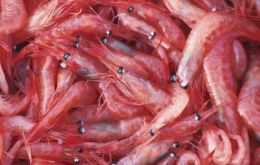
Conservation groups and scientists worry that China’s push to boost its harvest of krill -- a shrimp-like creature used for aquaculture feed and human supplements -- may leave Antarctica’s whales, seals and penguins struggling to survive. China’s leaders say they want a seven-fold increase in krill production, according to a recent report in the state-owned China Daily newspaper.
-
Wednesday, March 18th 2015 - 13:17 UTC
First call for proposals from Antarctic Wildlife Research Fund

The Antarctic Wildlife Research Fund (AWR) issued this week its first call for proposals, inviting applications from scientific researchers who can aid in determining the impact of the krill fishing industry on the Antarctic marine ecosystem. Such research will serve to ensure ecosystem protection, while improving the management basis for the fishery.
-
Wednesday, February 25th 2015 - 17:39 UTC
Antarctic wildlife research fund launched in Australia with Norwegian support
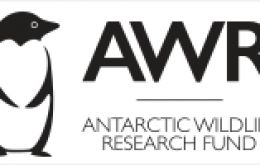
The Antarctic Wildlife Research Fund (AWR) was unveiled at a ceremony in Australia, with the aim of strengthening the scientific basis for the management of the Southern Ocean and the Antarctic Region.
-
Monday, August 26th 2013 - 08:25 UTC
Rising sea temperature will reduce krill growth habitat in Antarctica

Antarctic krill are usually less than 6 cm in length, but their size belies the major role they play in sustaining much of the life in the Southern Ocean. They are the primary food source for many species of whales, seals, penguins and fish.
-
Monday, July 9th 2012 - 17:55 UTC
Norwegian company completes most successful Antarctic krill season
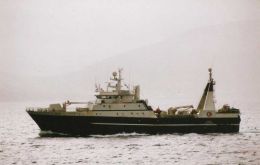
Olympic Seafood AS has announced that its vessel ‘Juvel’ has recently completed its most successful Antarctic krill season ever, with record efficiency and a catch of the utmost quality.
